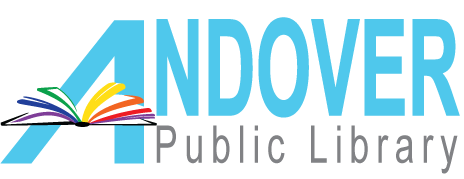Date/Time
Date(s) - Fri, 11/22/19
5:00 pm - 6:00 pm

Location
Andover Public Library
Adults & Teens 10+
As part of the Pushing the Limits Programs funded through the National Science Foundation, we are pleased to host Dr. Ann Abraham as she presents a fun and interactive program about Transformations in Chemistry. Read more …
Ann Abraham, Phd. is an Assistant Professor in Chemistry at the Ashtabula, Kent State Campus. Dr. Abraham’s program just might make you think of “Dr. Wizard” or “Bill Nye, the Science Guy”. This isn’t your typical science lesson!
Pushing the Limits is a reading, viewing and discussion program for adults in communities served by rural libraries, made possible by a grant from the National Science Foundation. The program is the work of a team of library professionals, scientists, and filmmakers from organizations including Dartmouth College, the Association for Rural and Small Libraries, the Califa Library Group, Public Library Association, Dawson Media Group, Institute for Learning Innovations, Goodman Research Group, and Oregon State University.
Recommended reading for the Transformation portion of the Pushing the Limits Programs:
-
The Boy Who Harnessed the Wind: Creating Currents of Electricity and Hope
by William Kamkwamba
When a terrible drought struck William Kamkwamba’s tiny village in Malawi, his family lost all of the season’s crops, leaving them with nothing to eat and nothing to sell. William began to explore science books in his village library, looking for a solution. There, he came up with the idea that would change his family’s life forever: he could build a windmill. Made out of scrap metal and old bicycle parts, William’s windmill brought electricity to his home and helped his family pump the water they needed to farm the land.
-
Flight Behavior
by Barbara Kingsolver
Flight Behavior is a brilliant and suspenseful novel set in present day Appalachia; a breathtaking parable of catastrophe and denial that explores how the complexities we inevitably encounter in life lead us to believe in our particular chosen truths. Kingsolver’s riveting story concerns a young wife and mother on a failing farm in rural Tennessee who experiences something she cannot explain, and how her discovery energizes various competing factions—religious leaders, climate scientists, environmentalists, politicians—trapping her in the center of the conflict and ultimately opening up her world. Flight Behavior is arguably Kingsolver’s must thrilling and accessible novel to date, and like so many other of her acclaimed works, represents contemporary American fiction at its finest.
-
The Wright Brothers
By David McCullough
The #1 New York Times bestseller from David McCullough, two-time winner of the Pulitzer Prize—the dramatic story-behind-the-story about the courageous brothers who taught the world how to fly—Wilbur and Orville Wright.
Orville and Wilbur Wright were men of exceptional courage and determination, and of far-ranging intellectual interests and ceaseless curiosity. When they worked together, no problem seemed to be insurmountable. Wilbur was unquestionably a genius. Orville had such mechanical ingenuity as few had ever seen. That they had no more than a public high school education and little money never stopped them in their mission to take to the air. Nothing did, not even the self-evident reality that every time they took off, they risked being killed.
-
How Enlightenment Changes Your Brain: The New Science of Transformation
by Andrew Newberg and Mark Robert Waldman
In this original and groundbreaking book, Andrew Newberg, M.D., and Mark Robert Waldman turn their attention to the pinnacle of the human experience: enlightenment. Through his brain-scan studies on Brazilian psychic mediums, Sufi mystics, Buddhist meditators, Franciscan nuns, Pentecostals, and participants in secular spirituality rituals, Newberg has discovered the specific neurological mechanisms associated with the enlightenment experience–and how we might activate those circuits in our own brains. In his survey of more than one thousand people who have experienced enlightenment, Newberg has also discovered that in the aftermath they have had profound, positive life changes. Enlightenment offers us the possibility to become permanently less stress-prone, to break bad habits, to improve our collaboration and creativity skills, and to lead happier, more satisfying lives. Relaying the story of his own transformational experience as well as including the stories of others who try to describe an event that is truly indescribable, Newberg brings us a new paradigm for deep and lasting change
-
Lab Girl
by Hope Jahren
Geobiologist Hope Jahren has spent her life studying trees, flowers, seeds, and soil. Lab Girl is her revelatory treatise on plant life – but it is also a celebration of the lifelong curiosity, humility, and passion that drive every scientist. In these pages, Hope takes us back to her Minnesota childhood, where she spent hours in unfettered play in her father’s college laboratory. She tells us how she found a sanctuary in science, learning to perform lab work “with both the heart and the hands.” She introduces us to Bill, her brilliant, eccentric lab manager. And she extends the mantle of scientist to each one of her readers, inviting us to join her in observing and protecting our environment. Warm, luminous, compulsively readable, Lab Girl vividly demonstrates the mountains that we can move when love and work come together.

